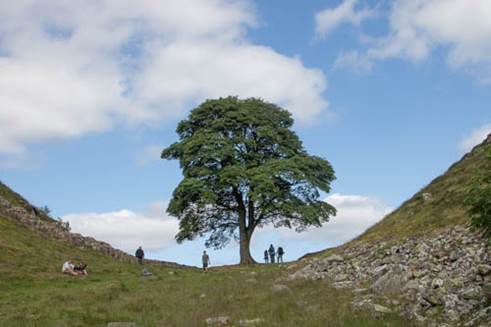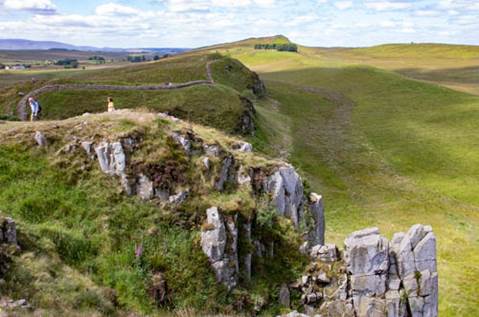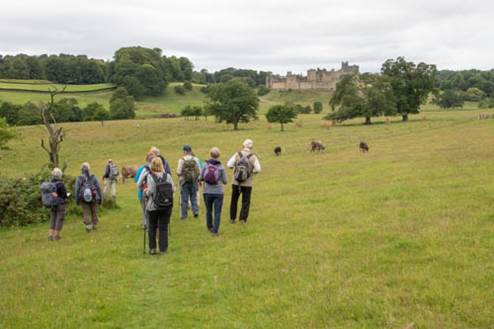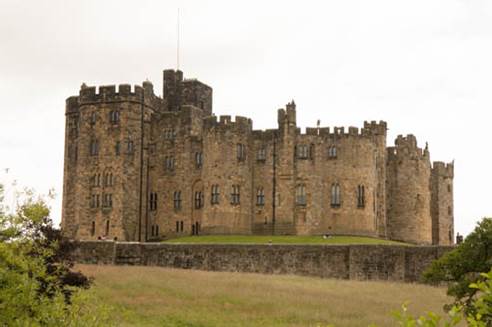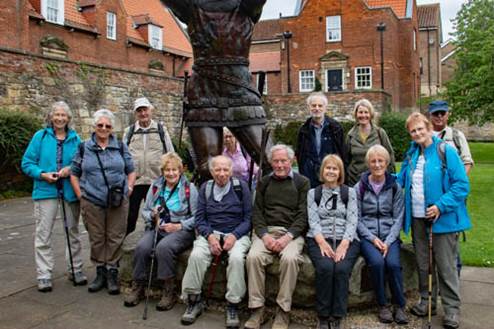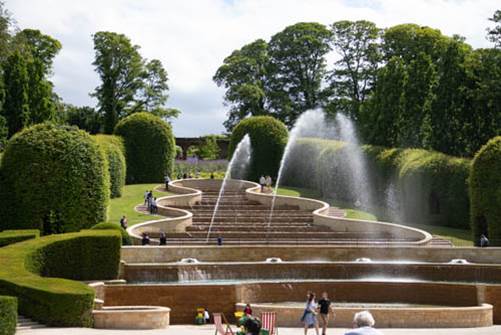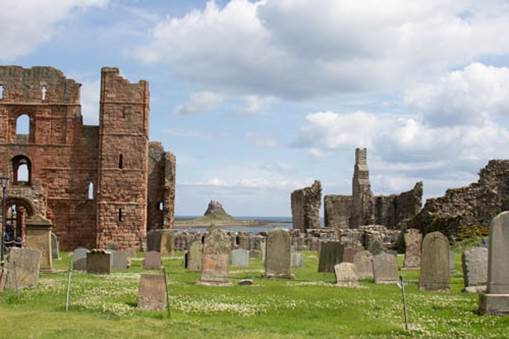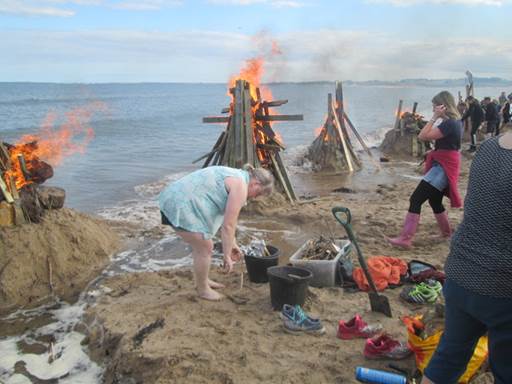Northumberland Holiday
5 - 12 July 2019
Sixteen of us caught the train up to Alnmouth, near Alnwick, for a week's walking holiday staying at Nether Grange, the HF House, in Northumberland. Fourteen of us were doing the "Walking with Sightseeing" - option mixing short walks with visits - and two members opted for the walks programme.
We had a lovely time visiting part of Hadrian's wall passing the famous Robin Hood tree at Sycamore Gap. Following the wall was hilly in parts but stunning views of the surrounding countryside made it all worth the effort! The coach took us on to the superb Vindolanda - a Roman fort and museum just south of Hadrian's wall. Back at the hotel, some people joined in the Volcano Night on the beach where competitors built sandcastles as a base for a wood fire then waited to see which one burnt longest once the tide came in.
Another beautiful walk along the River All to Alnwick gave us time to explore the formal gardens created by the Duchess of Northumberland set around a cascading fountain. Some of us went on to the famous second-hand Barter Bookshop situated in a Victorian railway station.
Monday was a free day. On Tuesday there was persistent heavy rain all day but we still enjoyed a boat trip around the Farne Islands and then a walk to Bamburgh Castle. Three of us went on a different boat trip and landed on the islands where we took many photographs of puffins, artic terns, guillemots and many other nesting birds and seals.
On Wednesday we walked to Craster, the home of the kipper, passing the dramatic ruins of Dunstanburgh Castle perched on a remote headland. From there, we travelled by coach to visit the Holy island of Lindisfarne where an Irish monk Saint Aiden founded the monastery around 634. After passing the ruined monastery, we walked out to the castle based on a Tudor fort and refurbished in the Arts and Crafts style by Sir Edwin Lutyens. His friend, Gertrude Jekyll, laid out a tiny garden north of the castle in 1911. After a circular walk, we returned to the town where a cream tea awaited us!
Our final day was spent on a beautiful walk following historical carriage tracks, through woodlands and across the edge of the moor towards Cragside. It is a Victorian mansion in Tudor revival style near Rothbury which was the home of Lord William Armstrong. He was an industrial magnate, scientist and inventor of the Armstrong gun. Cragside was the first house in the world to be lit using hydroelectric power. The extensive, hillside gardens were a pleasure to explore.
Thank you Jeannette for organising a lovely walking holiday.
Sycamore Gap along Hadrian's Wall
View along Hadrian's Wall
Walking towards Alnwick Castle
Alnwick Castle
Group photo by Harry Hotspur in Alnwick
Cascading fountains at Alnwick gardens
Nesting guillemots on Farne Island
Puffins on Farne Island

Artic tern
Puffin with a mouthful of sand eels
Lindisfarne Monastery
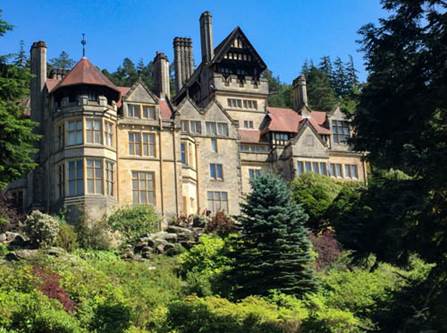
Cragside
Beach volcanoes on Alnmouth beach
